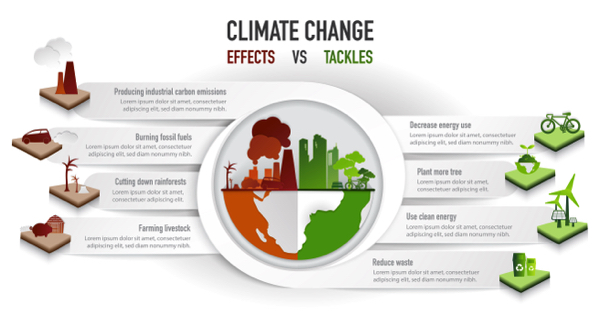 Parler
Parler Gab
Gab
- A proposed law in Iowa, dubbed the "Cancer Gag Act," seeks to shield pesticide manufacturers from lawsuits related to health risks associated with their products.
- Iowa has the second-highest rate of new cancer cases in the United States, and many Iowans believe that heavy reliance on pesticides, including glyphosate-based herbicides like Roundup, is contributing to this trend.
- Critics argue that the proposed legislation would grant corporations immunity from accountability, even in cases where their products are linked to cancer or other serious illnesses, and would prevent individuals from suing pesticide manufacturers if their products are approved by the EPA.
- Bayer, the maker of Roundup, has faced thousands of lawsuits alleging that the herbicide causes cancer and has paid over $11 billion to settle more than 100,000 claims, with many more cases still pending.
- The backlash against the Cancer Gag Act has been swift, with over 150 Iowans gathering at the State Capitol to rally against the bill, and the debate raises critical questions about the role of government in regulating industry, the rights of individuals to seek justice and the future of American agriculture.
The cancer crisis in Iowa: A state under siege
Iowa, known for its sprawling cornfields and soybean farms, is also grappling with a troubling reality: it has the second-highest rate of new cancer cases in the United States and the fastest-growing cancer rate. Many Iowans fear that the state’s heavy reliance on pesticides, including glyphosate-based herbicides like Roundup, is contributing to this alarming trend. The proposed legislation, Senate Bill 1051, would bar individuals from suing pesticide manufacturers for failing to warn them of health risks, as long as the product labels are approved by the U.S. Environmental Protection Agency (EPA). Critics argue that this would effectively grant corporations immunity from accountability, even in cases where their products are linked to cancer or other serious illnesses. “We’re very worried. Our farmers feel that if they have injuries or illnesses due to their use of a pesticide, they should have access to the courts,” said Aaron Lehman, president of the Iowa Farmers Union. “We just don’t think the playing field should be tilted.”Bayer’s billion-dollar battle: A corporate strategy to silence victims
At the center of this controversy is Bayer, the German pharmaceutical and chemical giant that acquired Monsanto in 2018. Monsanto, the maker of Roundup, has faced thousands of lawsuits alleging that its glyphosate-based herbicide causes cancer. To date, Bayer has paid over $11 billion to settle more than 100,000 claims, with many more cases still pending. Bayer’s push for legislative changes at both the state and federal levels is widely seen as an attempt to stem the tide of litigation. The company argues that the proposed laws are necessary to protect its “important investments” and ensure that farmers retain access to essential crop protection products. “The future of American farming depends on reliable science-based regulation of important crop protection products — determined safe for use by the EPA,” Bayer said in a statement. However, critics point out that the EPA’s approval process is far from infallible. Jonathan Oppenheimer, government relations director with the Idaho Conservation League, highlighted the agency’s reliance on industry-funded studies, which have historically downplayed the risks of certain chemicals. “There are significant concerns with the fact that EPA does not conduct its own safety studies on these products before they are approved,” Oppenheimer said. “As you look at the history of pesticide approval, there have been numerous instances where manufacturers knew that their products caused certain harms but sought to limit the public disclosure of those studies. As a result, many dangerous products have been on the market for years.”A growing movement: Farmers and advocates fight back
The backlash against the Cancer Gag Act has been swift and vocal. On February 10, over 150 Iowans gathered at the State Capitol in Des Moines to rally against the bill. Speakers held a vigil for cancer victims and called on legislators to reject what they see as a blatant attempt to prioritize corporate profits over public health. “Big Ag is making us sick — and Iowans know it,” said Michaelyn Mankel, Iowa organizer for Food & Water Watch. “Now, the giants that polluted our communities for profit want to silence their victims. No issue is more important right now than restoring our public health and clean water.” Barb Kalbach, a fourth-generation family farmer and member of CCI Action, echoed these concerns. “Bayer wants immunity because it’s been sued by thousands of individuals who’ve gotten sick. Cancer is a main focus of these lawsuits, and Roundup is a main cause of concern,” she said. “A bill like SSB 1051 sets a dangerous precedent for a state that has the second-highest rates of cancer in the nation. Who is the next corporation that is going to come asking for immunity?”Protecting farmers and public health
The fight over the Cancer Gag Act is far from over. While the bill is expected to pass the Iowa Senate, it faces strong opposition in the House and from the general public. Polling indicates that most Iowans are skeptical of Bayer’s messaging and supportive of holding corporations accountable for the health impacts of their products. As the debate continues, it raises critical questions about the role of government in regulating industry, the rights of individuals to seek justice and the future of American agriculture. For conservatives who value personal responsibility, free markets and limited government, the Cancer Gag Act represents a troubling overreach that prioritizes corporate interests over the well-being of farmers and consumers. In the words of Andrew Mertens, executive director of the Iowa Association for Justice, “Polling in Iowa would indicate that the general public is simply not going to fall for Bayer’s message. But legislators can be swayed in ways that voters cannot, so the fight is far from over.” As Iowans and Americans across the country grapple with the implications of this legislation, one thing is clear: the stakes could not be higher. The Cancer Gag Act is not just about protecting corporations from lawsuits — it’s about safeguarding the health and rights of those who feed the nation. Sources include: ChildrensHealthDefense.org TheGuardian.com FoodandWaterWatch.orgTrump declares war on DOJ corruption, orders immediate firing of all Biden-era attorneys
By Willow Tohi // Share
The path to digital ID mandates: How social media regulation could reshape online privacy
By Willow Tohi // Share
Trump voices out FRUSTRATION toward critics of his Ukraine peace plan, including Zelensky
By Ramon Tomey // Share
Jewish leaders and celebrities unite against Trump’s Gaza plan in historic New York Times ad
By Belle Carter // Share
Governments continue to obscure COVID-19 vaccine data amid rising concerns over excess deaths
By patricklewis // Share
Tech giant Microsoft backs EXTINCTION with its support of carbon capture programs
By ramontomeydw // Share
Germany to resume arms exports to Israel despite repeated ceasefire violations
By isabelle // Share










